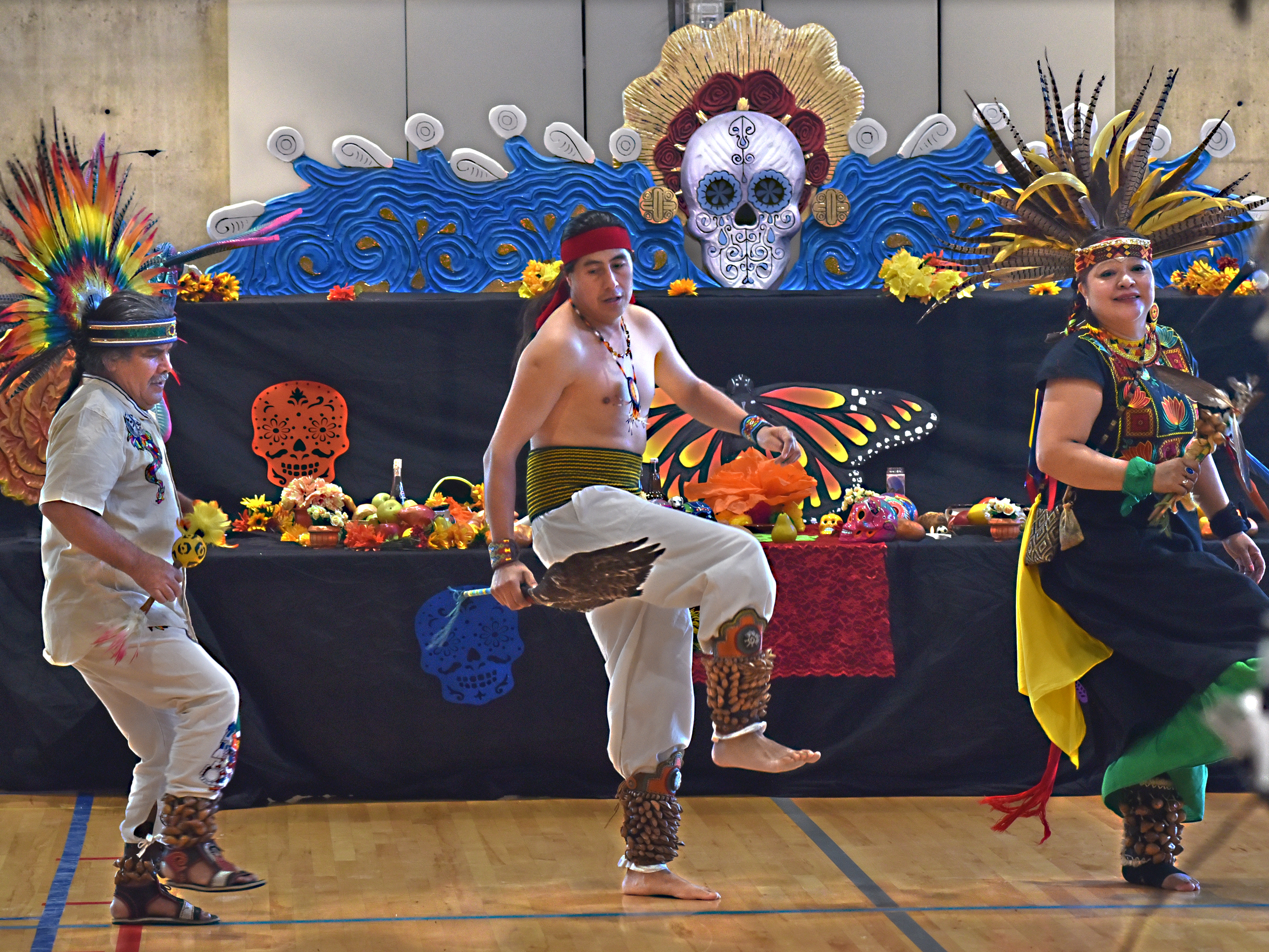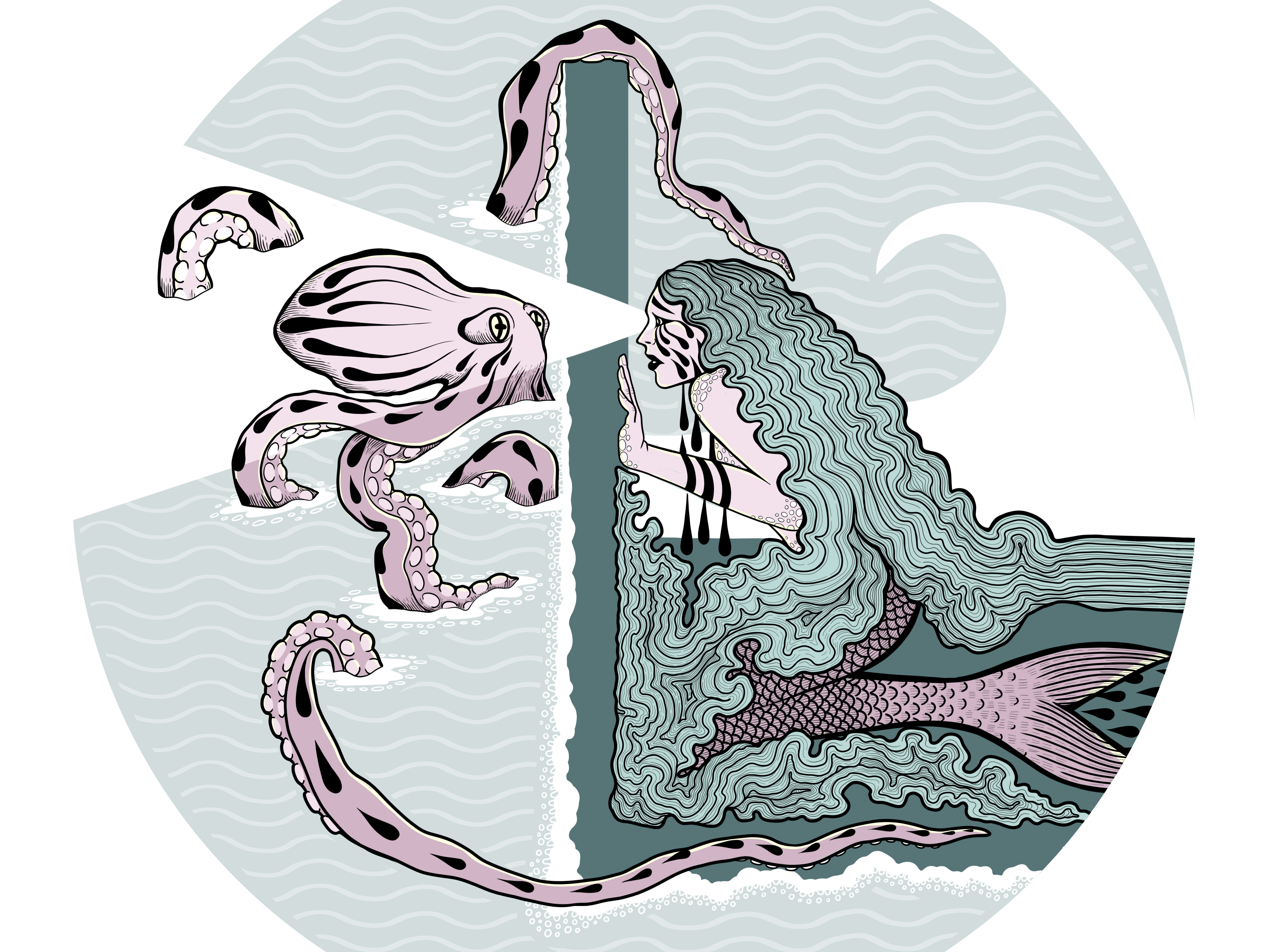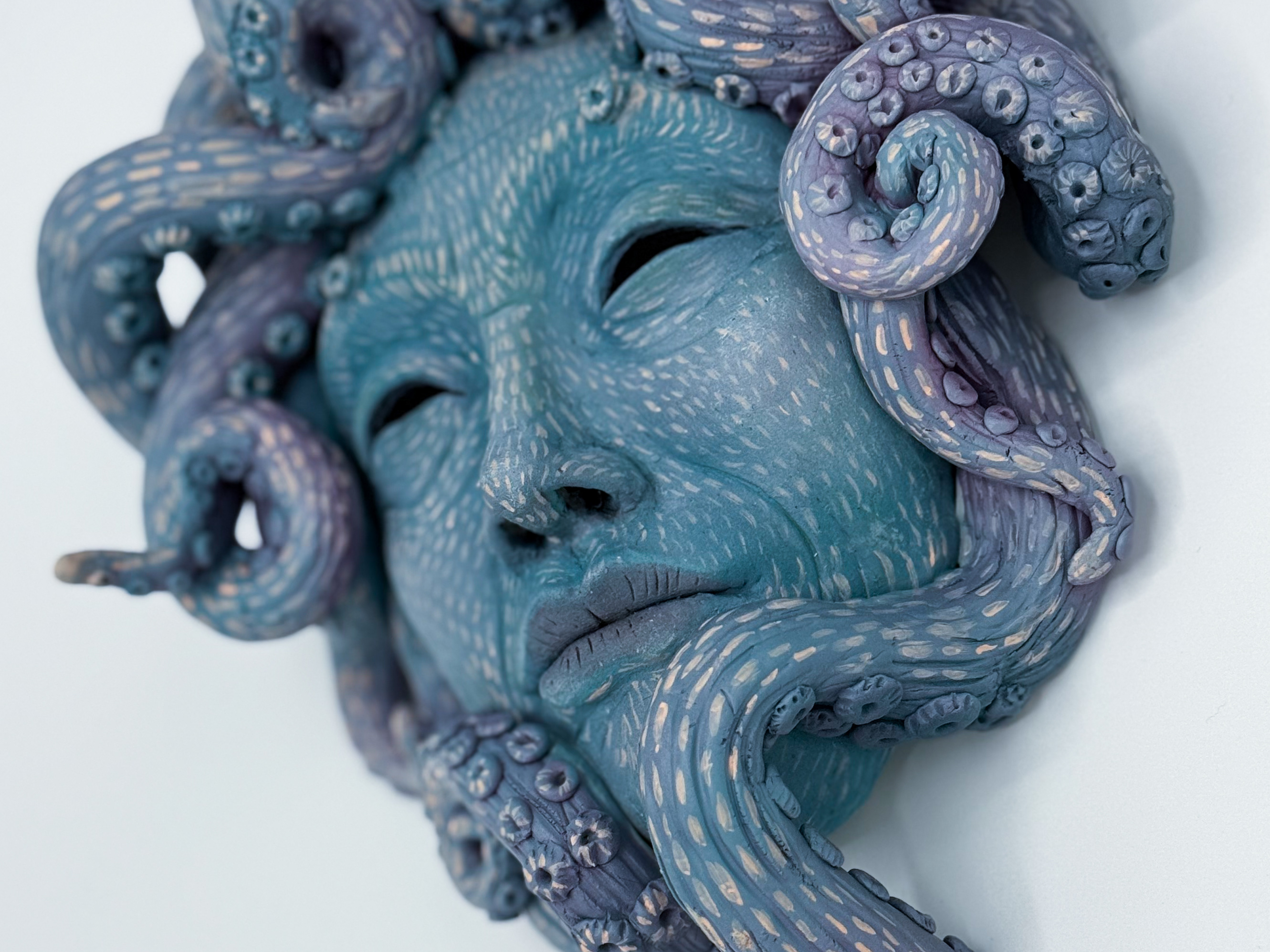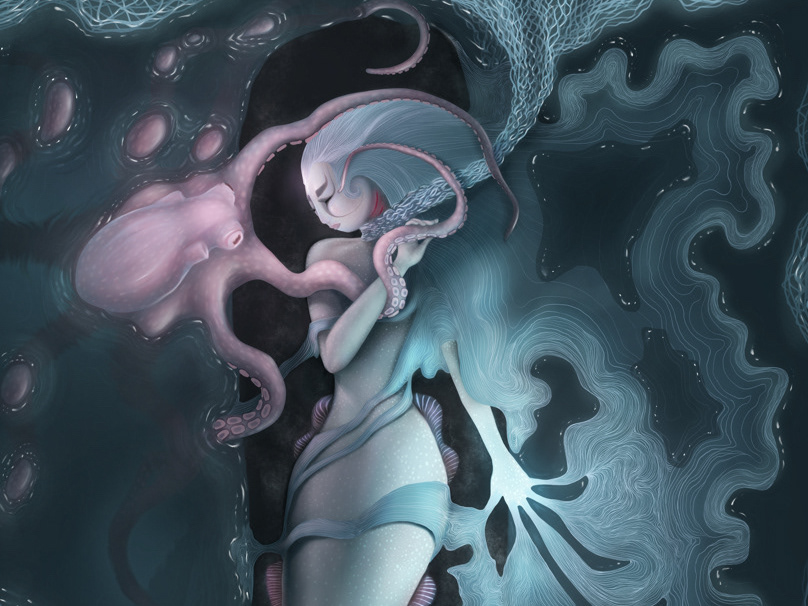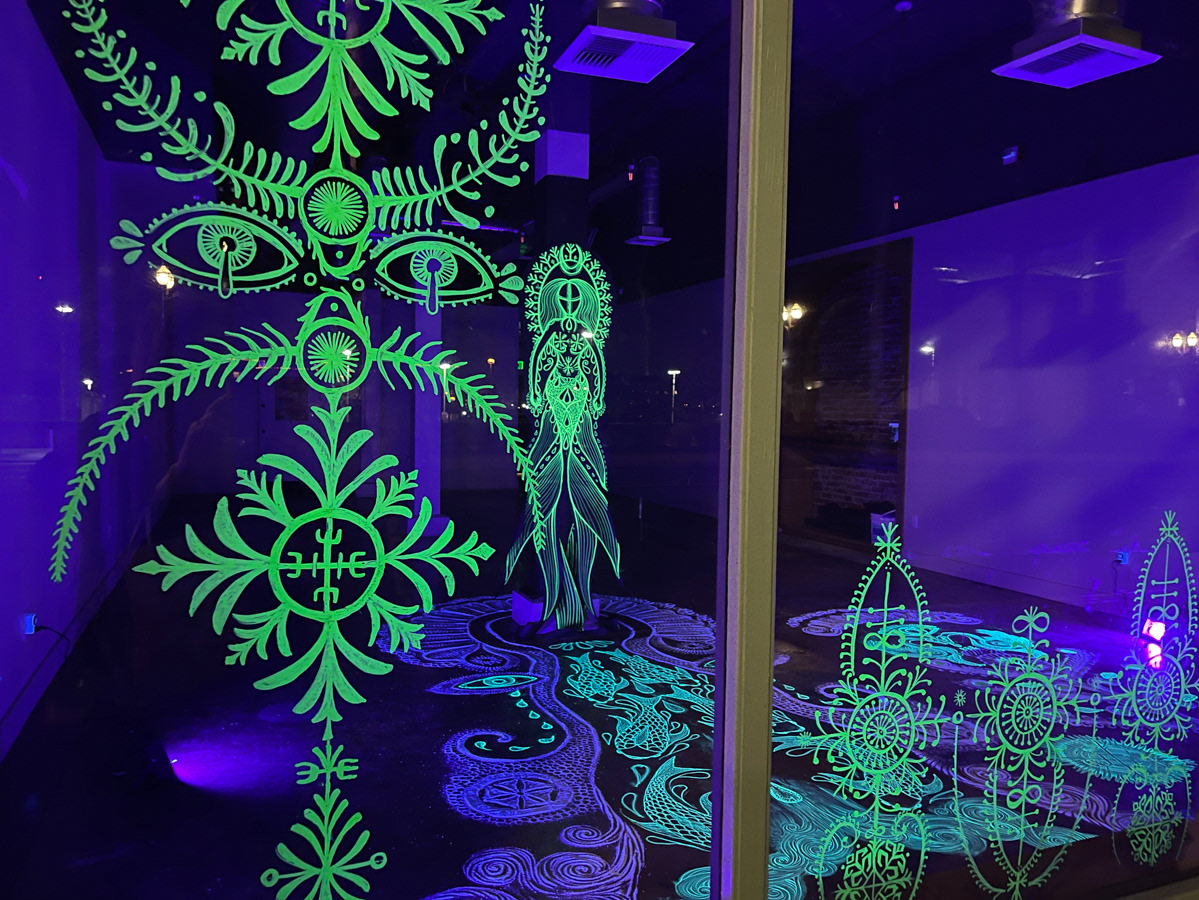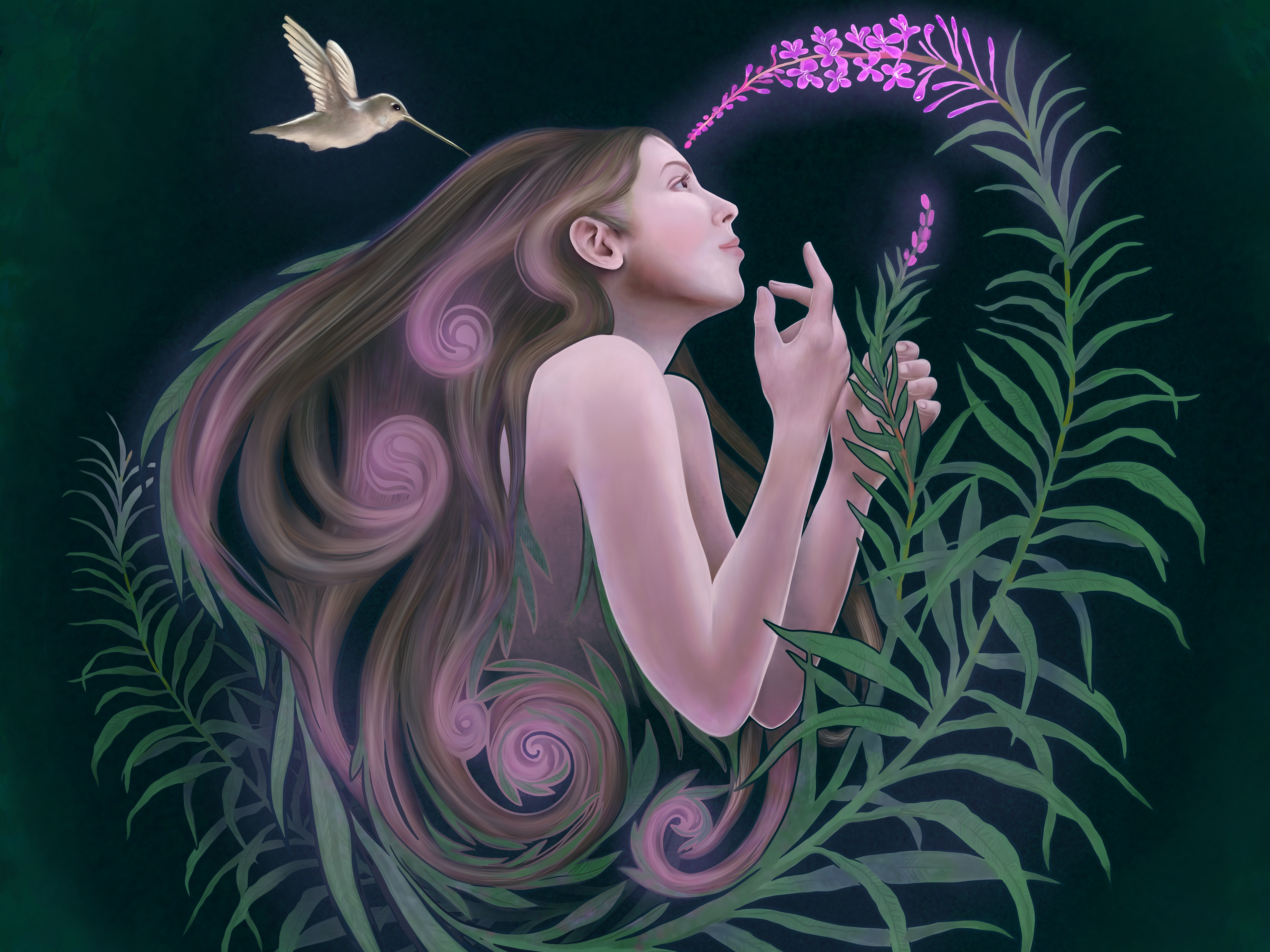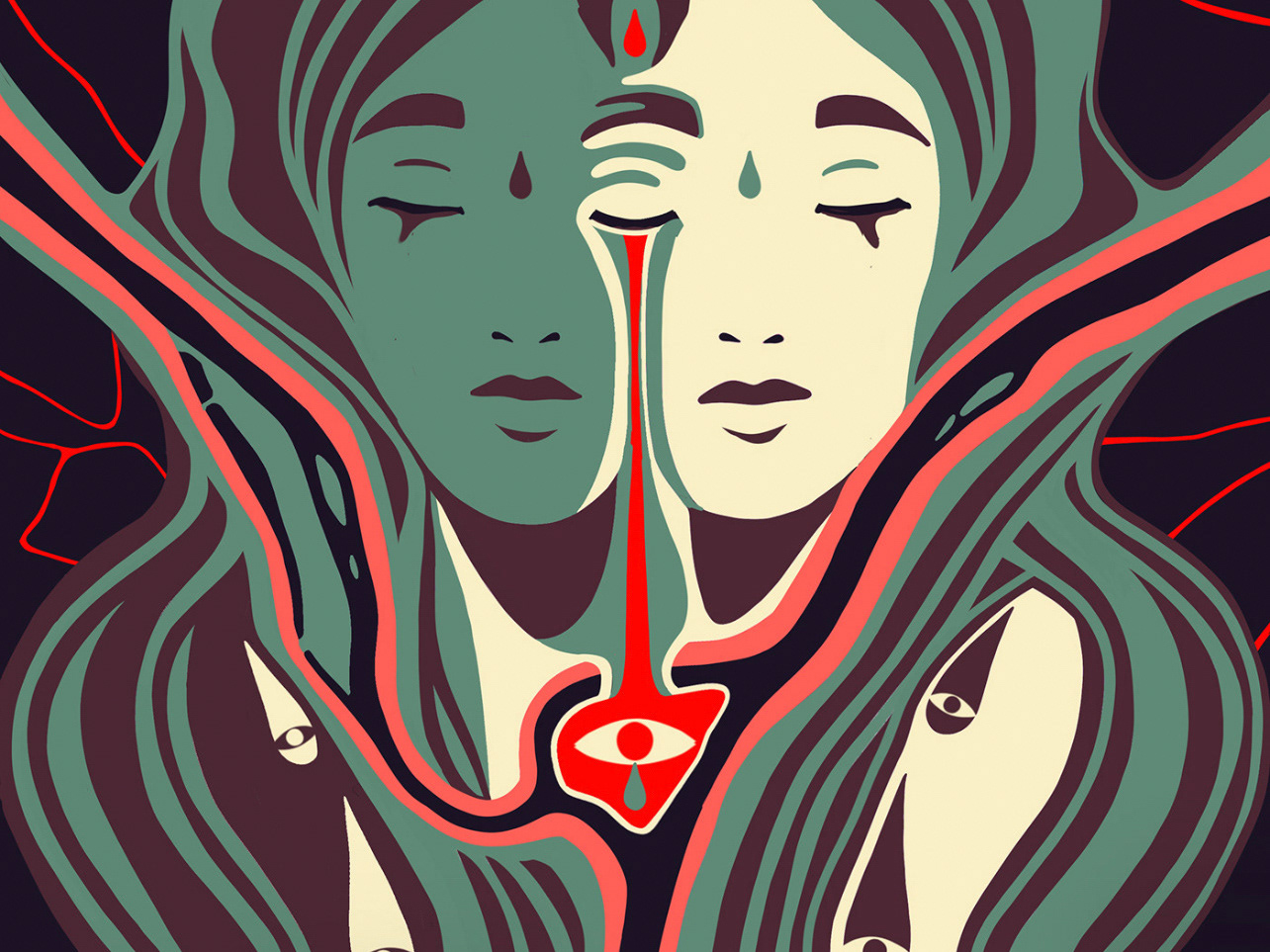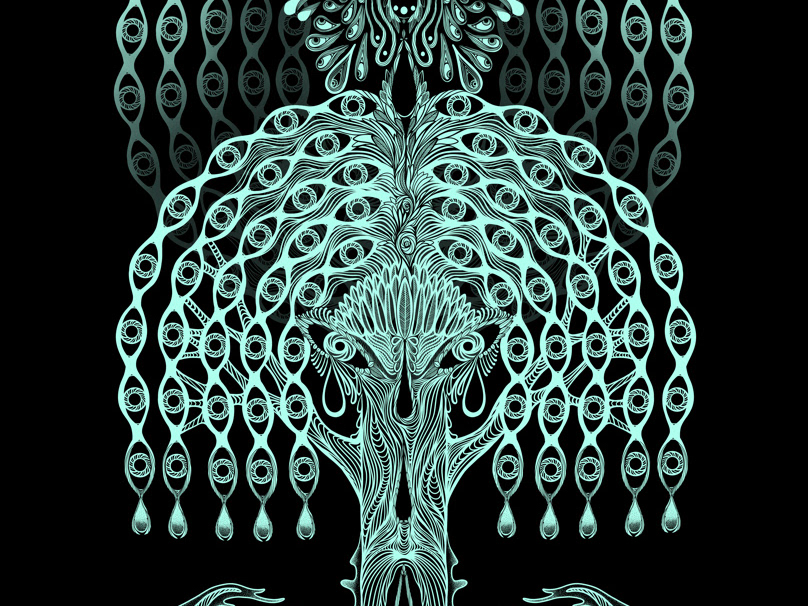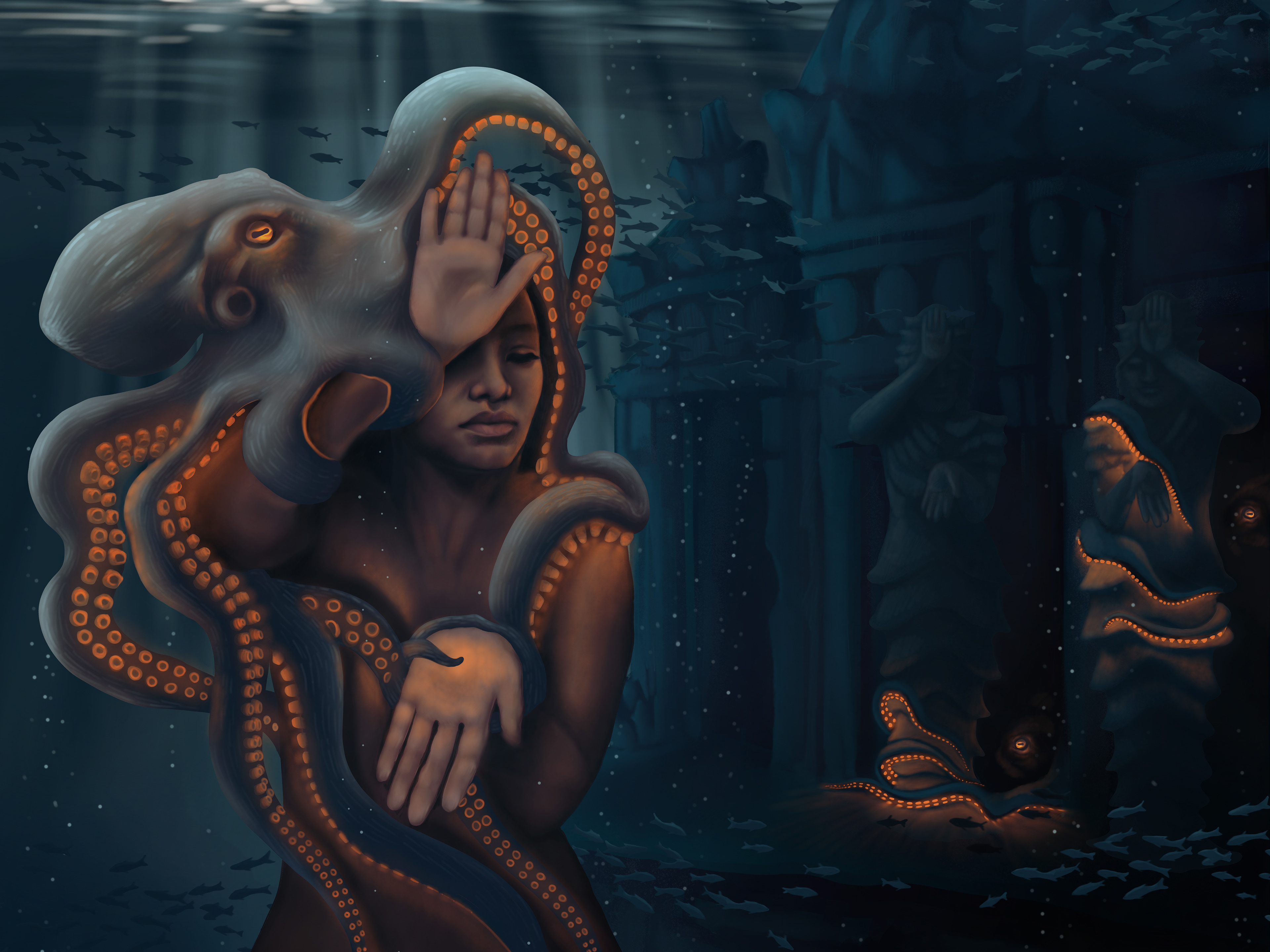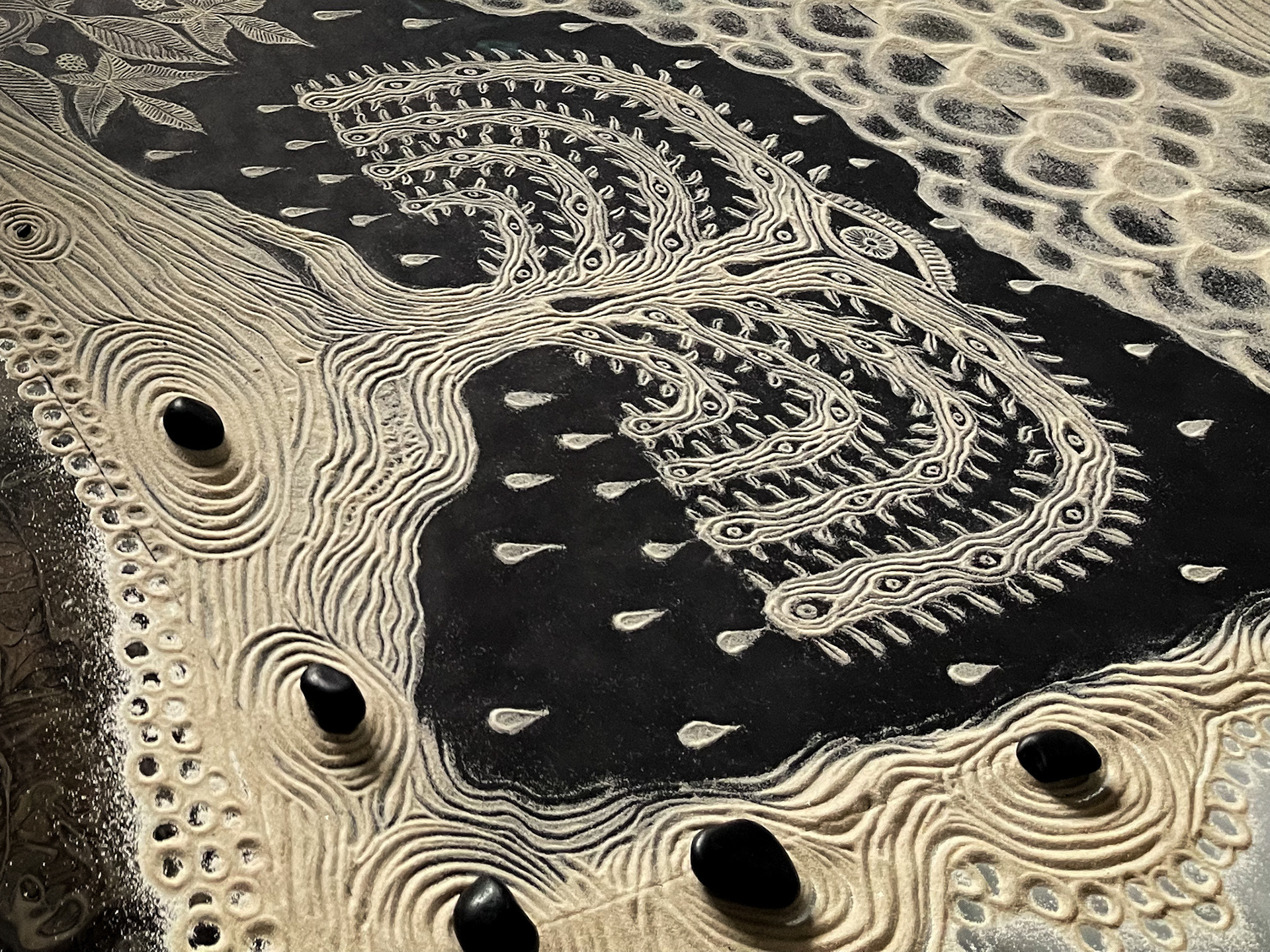Anātman means "no-self."
"We do not have a stem linking us to our mother anymore, but when we were in her womb we had a very long stem, an umbilical cord. The oxygen and the nourishment we needed came to us through that stem. Unfortunately, on the day we call our birthday, it was cut and we received the illusion that we are independent. That is a mistake. We continue to rely on our mother for a very long time, and we have several other mothers as well.
The Earth is our mother. We have a great many stems linking us to our Mother Earth. There is a stem linking us with the cloud. If there is no cloud, there is no water for us to drink. We are made of at least seventy percent water; the stem between the cloud and us is really there. This is also the case with the river, the forest, the logger, and the farmer. There are hundreds of thousands of stems linking us to everything in the cosmos, and therefore we can be. Do you see the link between you and me? If you are not there, I am not here; that is certain. If you do not see it yet, look more deeply and I am sure you will see. As I said, this is not philosophy. You really have to see.
...
A wave on the ocean has a beginning and an end, a birth and a death. But Avalokiteshvara tells us that the wave is empty. The wave is full of water, but it is empty of a separate self. A wave is a form that has been made possible, thanks to the existence of wind and water. If a wave only sees its form, with its beginning and end, it will be afraid of birth and death. But if the wave sees that it is water and identifies itself with the water, then it will be emancipated from birth and death. Each wave is born and is going to die, but the water is free from birth and death.
-Thích Nhất Hạnh
Anātman significa “no tener concepto de 'sí mismo.'"
“Ya no tenemos un tallo que nos une a nuestra madre, pero cuando estábamos en su vientre teníamos un tallo muy largo, un cordón umbilical. El oxígeno y el alimento que necesitábamos nos llegaban a través de ese tallo. Desafortunadamente, el día de nuestro nacimiento, se cortó y recibimos la ilusión de independencia. Eso es un error. Seguimos dependiendo de nuestra madre durante mucho tiempo, y tenemos varias otras madres también.
La Tierra es nuestra madre. Tenemos una gran cantidad de tallos que nos unen a nuestra Madre Tierra. Hay un tallo que nos une con la nube. Si no hay nube, no hay agua para beber. Estamos hechos de al menos un setenta por ciento de agua; el tallo entre la nube y nosotros está realmente ahí. Este es también el caso del río, el bosque, el maderero y el agricultor. Hay cientos de miles de tallos que nos unen a todo en el cosmos y, por lo tanto, podemos ser. ¿Ves el vínculo entre tú y yo? Si tú no estás allí, yo no estoy aquí; eso es seguro. Si aún no lo ves, mira más profundamente y estoy seguro de que lo verás. Como dije, esto no es filosofía. Realmente tienes que ver.
...
Una ola en el océano tiene un principio y un final, un nacimiento y una muerte. Pero Avalokiteshvara nos dice que la ola está vacía. La ola está llena de agua, pero está vacía de un “yo” separado. Una ola es una forma que ha sido posible gracias a la existencia del viento y el agua. Si una ola solo ve su forma, con su principio y final, tendrá miedo del nacimiento y la muerte. Pero si la ola ve que es agua y se identifica con el agua, entonces se emancipará del nacimiento y de la muerte. Cada ola nace y va a morir, pero el agua está libre de nacimiento y muerte.”
-Thích Nhất Hạnh
